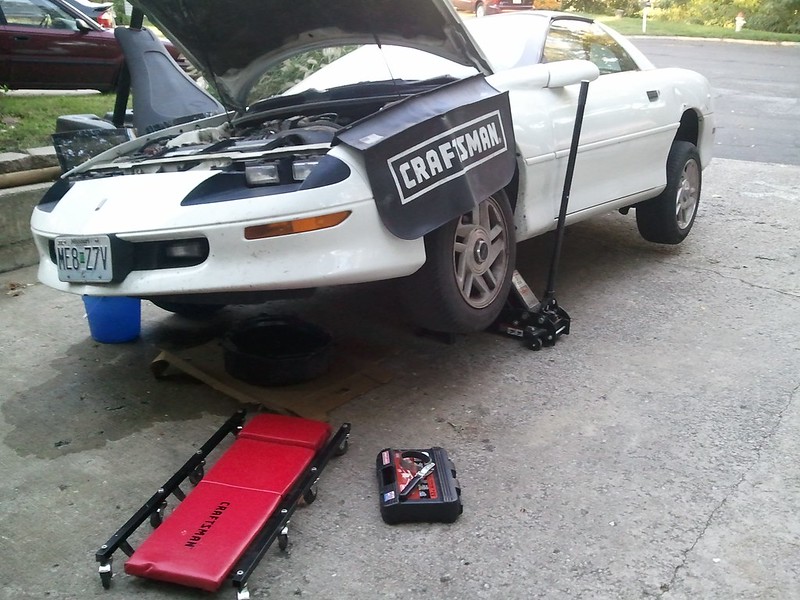
Wheel bearings are an essential component of your vehicle’s suspension system, responsible for assisting your wheels to rotate smoothly and reducing friction between the axle and wheel hub. They are exposed to a substantial amount of weight and pressure, making them susceptible to wear and tear over time. Knowing when to replace your wheel bearings can help prevent further damage and ensure the safety of your vehicle on the road.
Signs that you may need to replace your wheel bearings include abnormal noises, uneven wear on a good set of tires, vibrating steering wheel, and reduced handling and braking performance. If you notice any of these issues, it is crucial to address them immediately to avoid costly repairs and safety hazards on the road.
Regular maintenance, inspection, and replacement of your wheel bearings as needed can help prolong their lifespan and keep your vehicle running smoothly on the road.
What are Wheel Bearings?
Wheel bearings are an essential component of a vehicle’s wheel assembly that allow for smooth and frictionless rotation of the wheels. Wheel bearings are essentially a set of round steel balls or rollers that are encased in a metal ring and fitted between the axle and the wheel hub.
Over time, wheel bearings will experience wear and tear, and will eventually need to be replaced. Here are a few signs that you may need to replace your wheel bearings:
- Grinding or roaring noise in the wheels, especially when turning or braking.
- Shaking or vibrating sensation in the steering wheel.
- Uneven tire wear due to alignment problems caused by worn bearings.
If you experience any of these symptoms, then it may be time to replace your wheel bearings. A qualified mechanic can diagnose the problem and replace the bearings as needed.
Symptoms of a Faulty Wheel Bearing
Wheel bearings are an integral part of your vehicle’s suspension system, and they play a critical role in ensuring a safe and smooth ride. Here are some tell-tale signs to look out for that indicate it’s time to replace your wheel bearings:
| – Unusual noises: | A humming, grinding, or clicking noise coming from your wheels when you’re driving is often an indication that the wheel bearings are worn out. |
| – Steering wheel vibration: | A faulty wheel bearing can cause vibrations in the steering wheel, making the vehicle’s handling feel loose or unstable. |
| – Uneven tire wear: | Wheel bearings that are worn out or damaged can cause uneven tire wear, which is often visible as bald or flat spots on tires. |
| – Lateral movement: | If there is lateral movement or looseness in the wheel, it could be due to a worn-out wheel bearing. |
It’s important to get these symptoms checked out by a professional mechanic as soon as possible to avoid any further damage or safety issues.
Causes of a Faulty Wheel Bearing
A faulty wheel bearing can cause a range of issues that can compromise your safety and your car’s performance. Here are some common causes of a faulty wheel bearing and signs that you need to replace them.
| – Lack of Lubrication: | Lack of lubrication can cause the wheel bearings to wear out quickly and develop grooves, making them noisy and prone to overheating. |
| – Contamination: | Dirt, water, and other contaminants can seep into the bearing, causing rust and corrosion that can damage the bearing and cause it to fail. |
| – Wear and Tear: | Over time, bearings can wear out due to typical usage and driving conditions, leading to looseness, vibration, and noise coming from the wheels. |
Signs that indicate you need to replace your wheel bearings include unusual grinding or whirring noises coming from your wheels, vibration or wobbling while driving, your car pulling to one side, or uneven tire wear. Pro Tip – Regular maintenance and inspection of your car’s wheel bearings can help you catch issues early and prevent costly repairs down the line.
How to Diagnose a Faulty Wheel Bearing
Wheel bearings play a vital role in enabling the wheels of your vehicle to rotate smoothly. A faulty wheel bearing can cause a variety of issues such as grinding noises, vibration, and poor handling. Therefore, it is essential to know when to replace your vehicle’s wheel bearings.
Here are some common symptoms of a faulty wheel bearing that can help you diagnose the issue:
| Symptom | Description |
|---|---|
| Grinding noise | A loud metallic grinding noise from the wheel area while driving is a common sign of faulty wheel bearings. |
| Vibration | A vibration or shimmy in the steering wheel or vehicle can also indicate a bad wheel bearing. |
| Uneven tire wear | Uneven or outer tire wear on the affected wheel is an indication of a faulty wheel bearing. |
| Handling issues | Poor handling of the vehicle, including a tendency to pull to one side, is also a sign of a bad wheel bearing. |
If you experience any of the above symptoms, it is recommended to get your wheel bearings inspected and replaced by a mechanic to prevent further damage to your vehicle.
Pro tip: Regular maintenance, including greasing of the wheel bearings, can prevent premature wear and tear and prolong the life of your vehicle’s wheel bearings.
How to Replace a Wheel Bearing
Wheel bearings are an essential component of any vehicle’s wheel assembly that ensures smooth wheel movement. Knowing when to replace them is vital for a safe and functional driving experience.
| When you hear a grinding or humming noise coming from your wheels, especially when taking a turn, it’s likely that your wheel bearings are worn out and need to be replaced. |
| When you notice your steering wheel vibrating or wobbling while driving, it could be due to worn-out wheel bearings. |
| If you feel a looseness in the wheel or notice uneven tire wear, it could be due to wheel bearings that have lost their shape or have become damaged. |
If you experience any of these warning signs, it is crucial to take your vehicle to a trusted mechanic to get your bearings checked and replaced if necessary. Not doing so can lead to further damage to your vehicle and pose a significant risk to your safety on the road.
Cost of Replacing a Wheel Bearing
Replacing a wheel bearing can be a daunting task, especially when you’re not sure when or why it needs to be done. However, there are a few signs to look out for that indicate it’s time to replace your wheel bearings and some factors that contribute to the cost of replacement.
| Signs that suggest you need to replace your wheel bearings are- |
|---|
| • Vibration and unusual noise in your vehicle’s wheels |
| • Wobbling or uneven tire wear |
| • ABS system getting turned on frequently |
The cost of wheel bearing replacement depends upon several factors, such as the type of vehicle, the quality of the parts, and the extent of damage. In general, the cost may range from $350 to $500 per wheel or more. Pro tip: Regularly maintaining your vehicle’s wheel bearings by cleaning and greasing them can extend their lifespan, reducing the cost of replacement.
Conclusion
In conclusion, as a general rule of thumb, wheel bearings should be replaced every 85,000-100,000 miles or sooner if you notice grinding noises or excessive vibrations while driving. Delaying the replacement of old and worn-out wheel bearings can lead to wheel failure and a compromised driving experience.
It’s essential to pay attention to signs that indicate the need for replacing wheel bearings, including irregular tire wear, wobbling wheels, and a noticeable decrease in braking performance. Timely replacement of worn-out wheel bearings not only ensures smooth and safe driving, but it also saves you money in the long run by preventing costly repairs.
| Pro Tip: | Always refer to the manufacturer’s manual for the recommended replacement interval and seek professional help if you’re unsure about the condition of your wheel bearings. |
Originally posted 2023-05-10 11:27:12.


